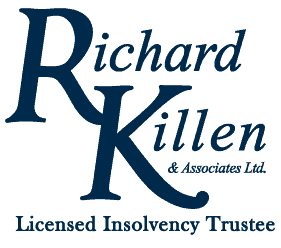Consequences Of Bankruptcy?
There are consequences of filing for bankruptcy and also benefits. Below we provide an overview of common questions regarding declaring bankruptcy in Toronto.
Instant Relief
The most significant consequence when signing your bankruptcy “Assignment” papers is that you have immediate relief from creditors who are contacting you regarding your debts. This includes the Canada Customs and Revenue Agency. All inquiries are referred to our office. The bankruptcy proceedings prevent anyone from suing you or garnishing your wages.
You Will Not Lose All Your Assets
During bankruptcy you may have to make some payments to the Trustee in Bankruptcy and even be afraid of the implications of bankruptcy, however, you will not lose all your assets. There may be some things you have to give up, but you probably will keep your furniture and personal effects, your car, and your business tools.
You May Be Able to Keep Your Car and House
During a bankruptcy in Toronto, it is possible to keep a secured asset such as a car or a house, as long as you arrange to continue your payment to the secured creditor, however, a bankruptcy will not stop a secured creditor from repossessing its security.
Your Spouse Should Not Be Affected
Your spouse and his or her property should not be affected by your bankruptcy, however, there are sometimes side effects. Ask the trustee if they may apply to you.
Co-signers and Guarantors Are Still Responsible for Their Obligations
Of course, going bankrupt has consequences, affecting the people who have co-signed or guaranteed any of your debts and the creditor may require them to pay and may want the balance in full. It is usually a good idea to talk to your co-signor before you go bankrupt.
Employers Do Not Need to Be Notified
Your employer will not be notified of your bankruptcy unless you are being garnished (which will at that point stop) or if you owe him money. With some rare exceptions, a person’s job is not affected at all by their bankruptcy.
You Can Still Operate or Start a Business
You are allowed to operate or start a business when you are bankrupt. Be sure to keep proper books and records. If it happens to be a corporation, you cannot be a director.
How Wages, Commissions, and Other Earnings are Affected
The Superintendent of Bankruptcy sets a “Standard” to determine if any of your net monthly income must be paid to your creditors. If your net income is more than the Standard, you have “Surplus Income” and must pay half of the Surplus to the trustee for the first 9 months of the bankruptcy. This amount can change during bankruptcy if your income or expenses change.
How your Credit Rating and Future Borrowing is Affected
Among the many consequences of filing bankruptcy, is the hit your credit rating takes. Restoring your credit rating after bankruptcy is not as hard as it used to be. However, you must first solve your financial problems, then you can begin working on your future credit rating. Bankruptcy is the beginning of that solution. The time that it takes to restore your credit rating depends on many varying factors, but most people can borrow again within 2 or 3 years. The credit bureau reports things, including your bankruptcy for 7 years. This does not mean that you cannot get credit for 7 years. Though it may be difficult to do, it is possible and legal to borrow during bankruptcy. If you do try to borrow, you must tell the lender you’re bankrupt.
As you can see there are both consequences of bankruptcy as well as benefits not to mention debt relief and reduction of stress.










